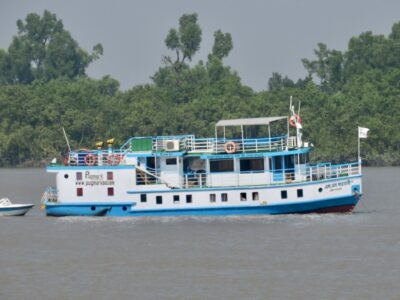
Guo is also the director of the Earth Institute China Initiative at Columbia University as well as the associate director of the Research Program on Sustainability Policy and Management. His research includes Chinese education, sustainable development, and more recently analyzing the impact of peer effect. To understand the meaning of sustainability as a part of economic framework, MPA-ESP Intern Anushree interviewed Guo.
1) Tell us about your background, and what led to your interest in sustainability.
Given my inclination towards understanding and building frameworks, I sought an in-depth training in Economics, specifically, the impact of education on economics. To me, Economics is a useful tool for quantifying sustainability metrics in monetary terms.
My interest in sustainability, on the other hand, grew organically. My current work pertains to the relationship between education and sustainable development, with people at the core of sustainability.
Sustainability itself is a broad concept. In the United States, when we talk about sustainability development, approximately 80% of it is focused on the environment. In my opinion, sustainability comprises of one third economics, one third social dimensions, and one third environment. Interestingly, in China, a major topic within sustainability pertains to the labor dimension. Quality of and access to education is a topic that the middle class and urban residents are concerned about. People acknowledge that for development to be truly sustainable in the long-run, education is the key.
With regard to the environmental concerns, people are generally hopeful that technology will be the solution. China is currently leading in solar applications, wind, and water power. With technological innovations, problems can be solved in the most efficient and cost-effective manner.
2) What role do you play at the Earth Institute and the Global Center in Beijing? What is the focus of your research? Are there interesting trends that you are emphasizing to students?
My current primary role at the Earth Institute is that of an Associate Research Scholar. My interests lie within the Chinese economy so several of my research projects are based on China’s Environmental Education.
My current research is on analyzing peer-effect trends – the impact of peers on one’s environmental perspective and understanding – both nationally and internationally. I am curious to see how the peer-effect can cultivate or impact people’s knowledge of environmental issues. In Economics, peer-effect often has a great impact on academics and the future labor market, since the numerous peer interactions that occur in professional, academic, and social settings may significantly impact one’s understanding. Peer-effect also aims to understand how diverse backgrounds can assist students in expanding their thought process.
My research interests also include education and sustainable development metrics, to complement economics measures of growth in Chinese cities, and people’s willingness to pay for environmental services.
3) Outside of academia, what are some of your other interests?
As my students know, growing up in the United Kingdom I picked up snooker. I am nowhere near being a professional, but I really enjoy it. I also offer my students the opportunity to play with me, with the possibility of extra-credit! Additionally, I am also keen on reading and playing tennis.
4) In your opinion, what is the greatest benefit/strength of the MPA ESP Program? What is your favorite aspect of teaching in the program?
MPA-ESP is known for the closeness of the cohort, which I think is its foremost strength. Students are bonded together which goes back to the peer-effect. The MPA-ESP cohorts, in particular, get to know each other unlike any other program. From studying together to experiencing NYC together; students are bound together professionally, academically, and socially. For both US citizens and international students, there is a tremendous amount to learn from other’s culture and values that allows students to gain a first-hand understanding.
My favorite aspect of teaching is when I see my students learning and getting something out of my course. That moment is my biggest achievement. In one of my earlier classes of Statistics, one of the students told me that they were unsure of how statistics would enhance their skill-set. At the end of my class, the outcome was that this student found themselves equipped with a framework to use in their day-to-day work, adding value in their profession. The student then reached out to me after graduation and said that they had truly underestimated the knowledge acquired through my class. To me it is all about adding value to the students and assisting them with their careers.
5) Do you have any advice and insight for prospective students?
Be willing to come in knowing that you will be engaging with your colleagues every day. This program teaches you management and policy skills, as well as technical expertise to deal with environmental challenges. It is my belief that hard sciences are better learnt in an academic and structured environment to build a solid understanding. This program has the perfect balance of rigor and application.



